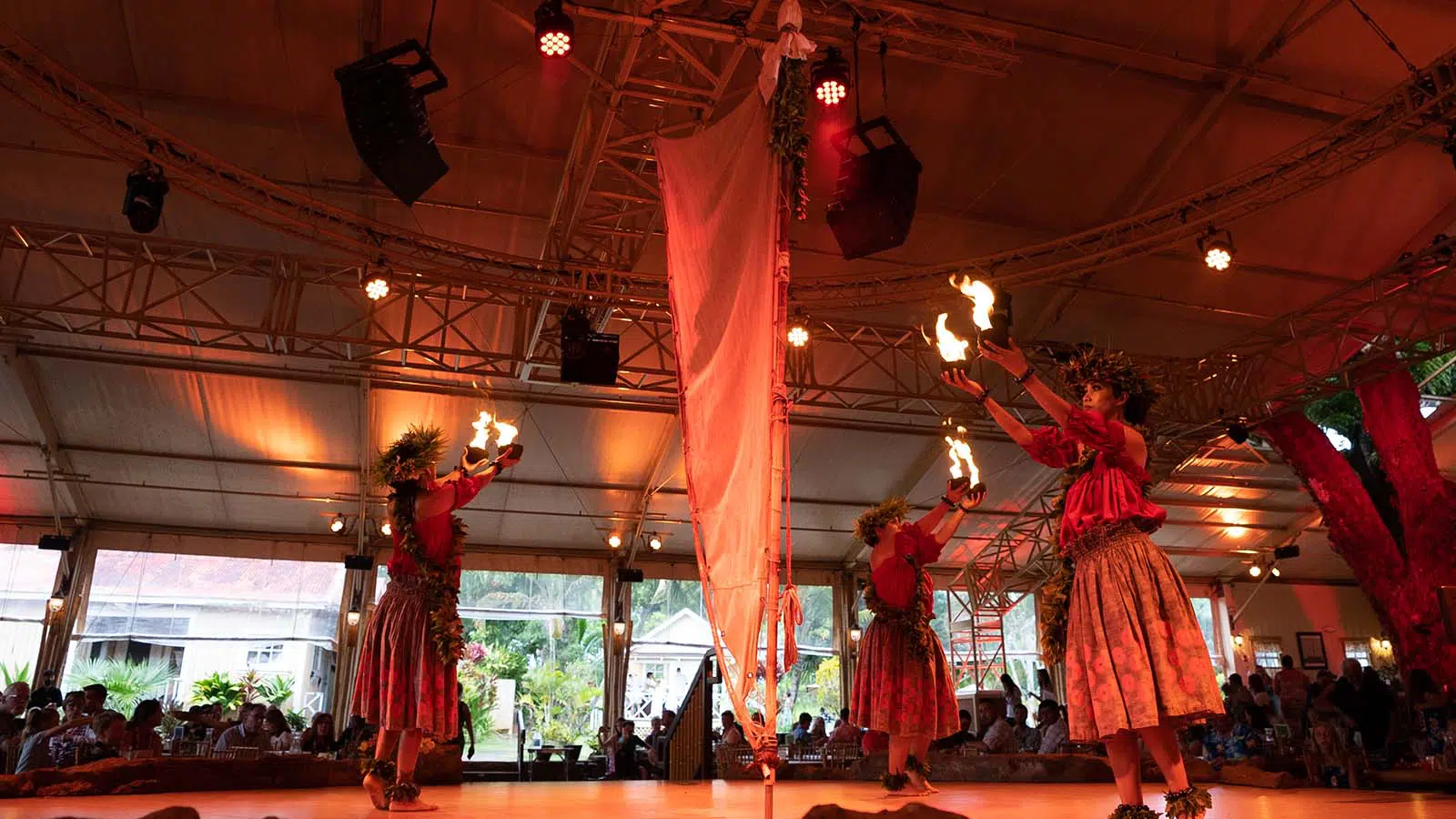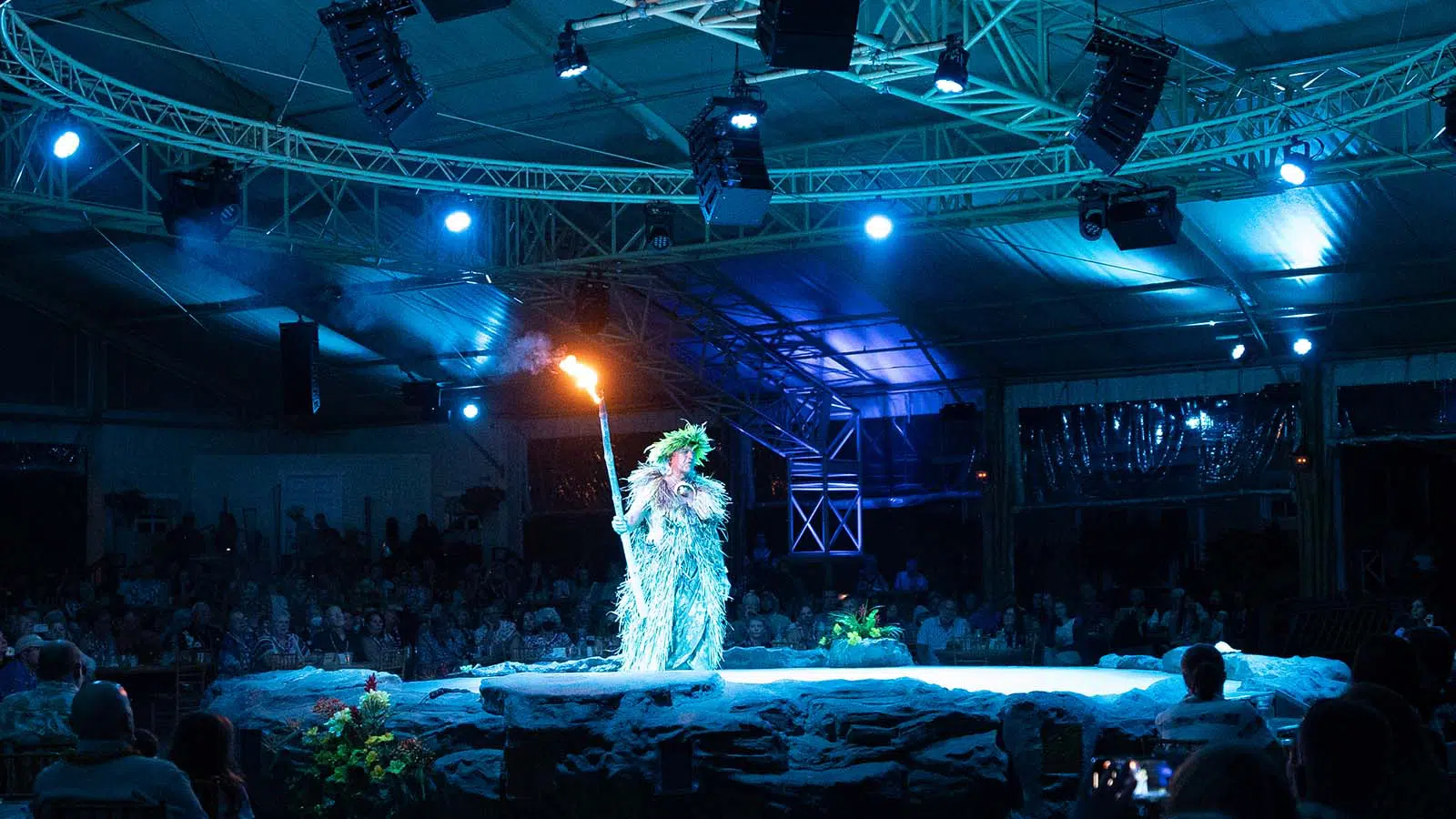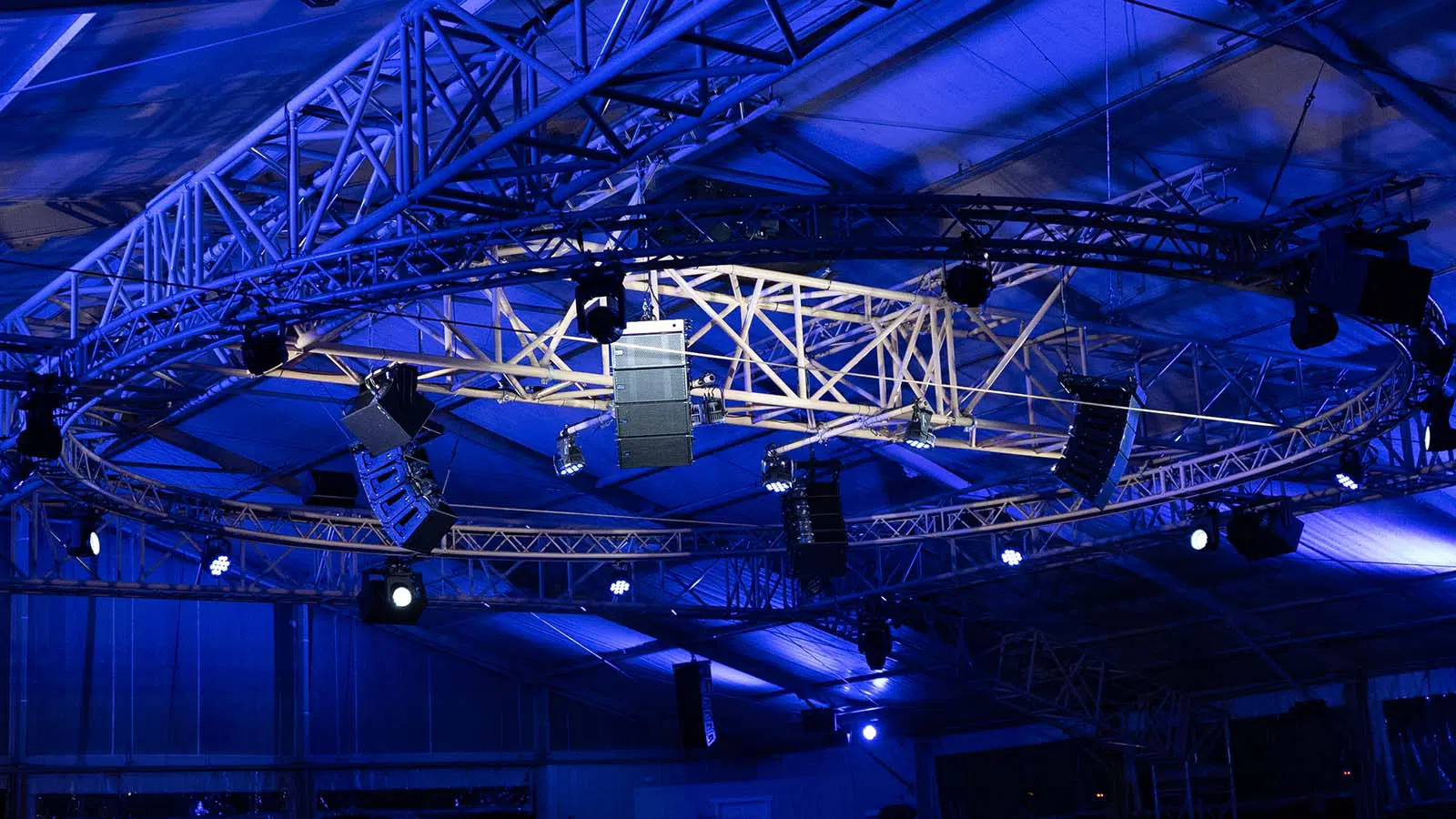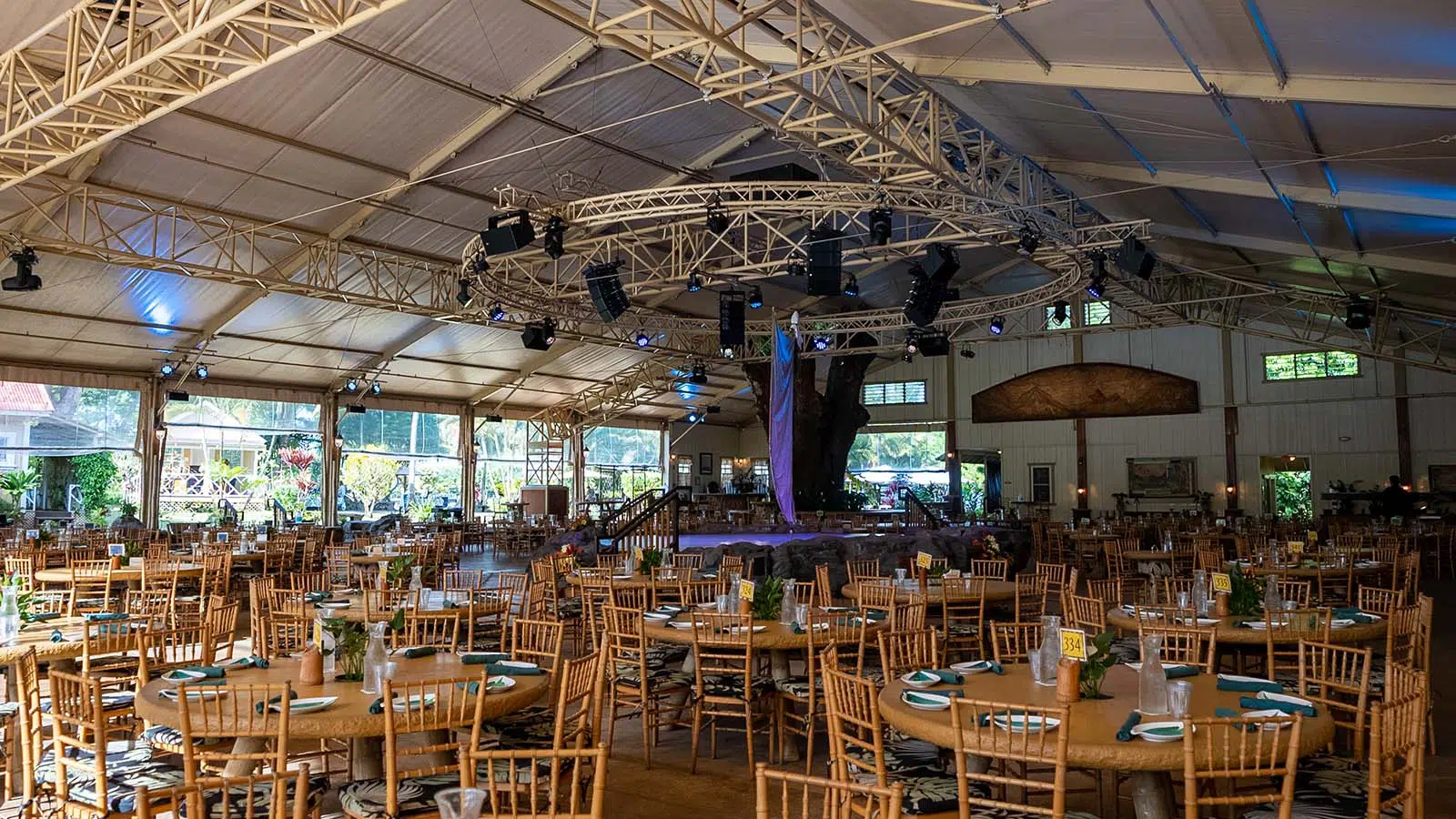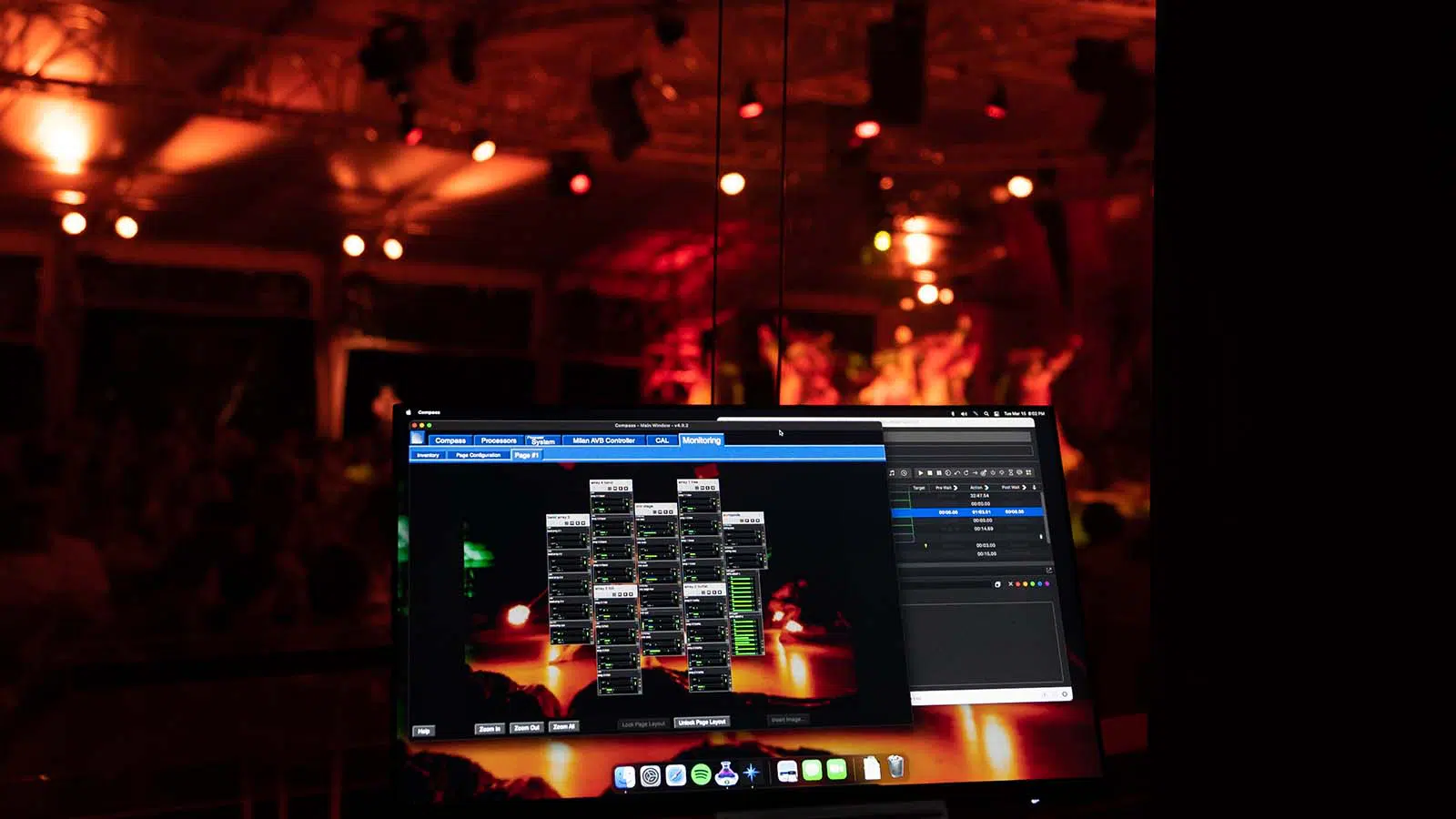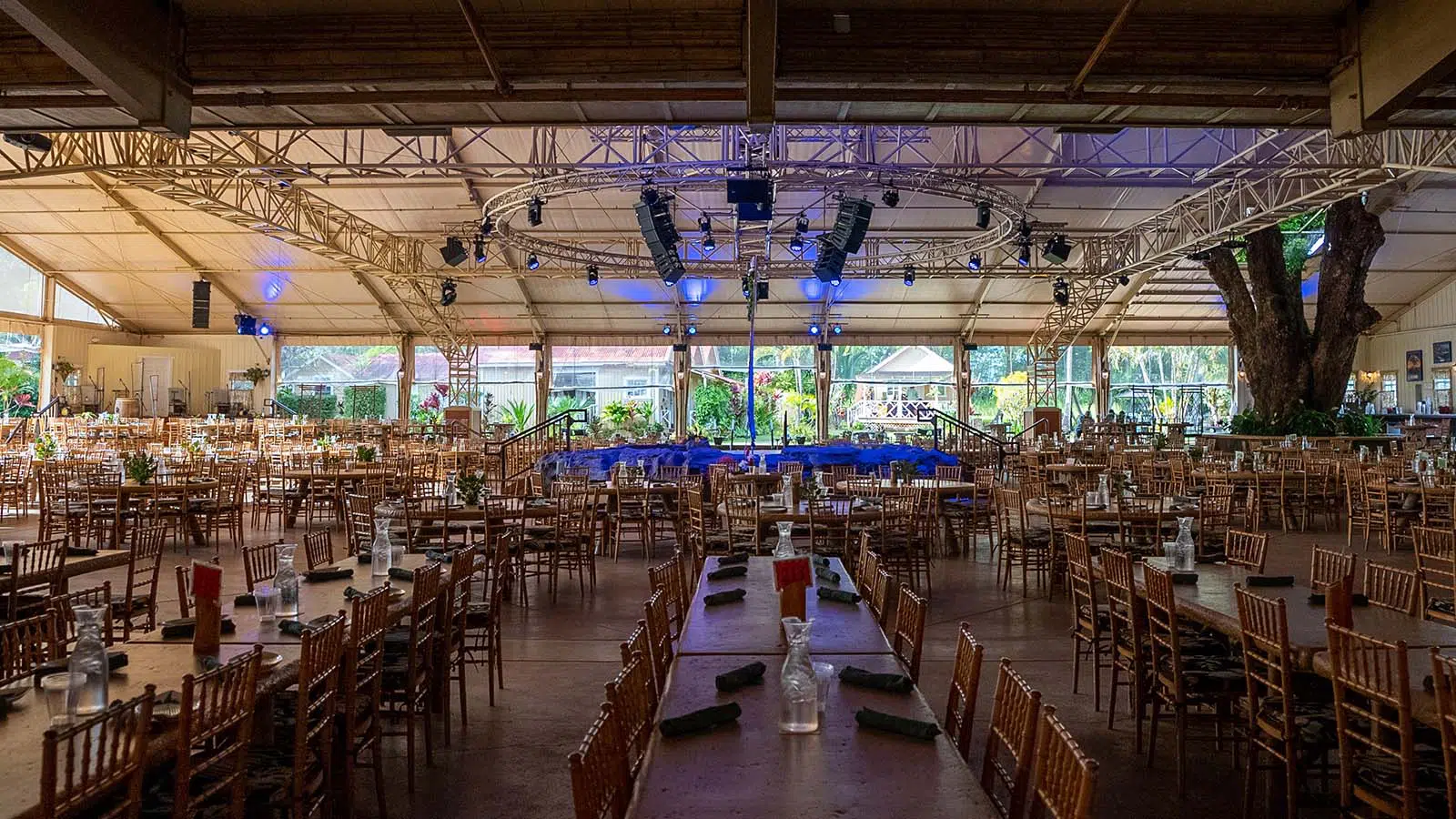Right now, I think we might have the best sound and light equipment anywhere in Hawaii...I’ve been here for 14 years and it’s night and day compared to what we’ve had in here before.”
Terry ChuckasOperations Manager, Luau Kalamaku
A top attraction on the island of Kauai for years, Luau Kalamaku is a celebration of Hawaiian history, culture, and cuisine centering around an hour-long program of music, dance and storytelling. To enhance the audiences’ experience of instrumental and vocal music, narration, and sound effects, Luau Kalamaku recently installed a 46-loudspeaker Meyer Sound system equipped for Spacemap Go spatial sound capability.
The event venue is a combination of a wood frame building and an open-sided rectangular tent with a very high ceiling. An audience of up to 800 is seated at tables surrounding a main center stage, where the performance takes place, while a supporting band is situated on a separate side stage. The venue’s problematic acoustics along with the need to focus the sound from two stages at one point with 360-degree coverage presented challenges to achieving optimum sound reproduction. Although the luau show long had received high marks for its overall production quality, there were occasional complaints about not understanding the storytelling, and management was well aware that audio coverage was not uniform throughout the venue.
Following a recommendation from Mark Witteveen at Chicago Flyhouse, who earlier had provided the trusswork for the production, the luau management reached out to Chris Gille of the audio, visual, and lighting design and integration firm HouseRight Production to consult on an audio system upgrade.
“From our initial contact with Chris we felt confident that HouseRight was the company we wanted to work with,” says Kevin Fischer, a co-owner of Luau Kalamaku’s parent firm. “Chris and his team strongly recommended that we use Meyer Sound products as not only would they deliver the best performance but they would also endure the humid climate of Kauai.”
Gille’s design had four principal goals. First, the system would ensure uniform, full bandwidth coverage of the entire audience with excellent speech intelligibility. Second, the system would seamlessly integrate sounds from the band stage and the center performance stage with dynamic localization. Third, implementation of the Spacemap Go spatial sound design and mixing tool would open new possibilities of creativity and audience involvement. And, finally, the system would provide years of reliable service despite exposure to rainforest humidity and power washing maintenance.
As installed, the central in-the-round system is anchored by 16 LINA very compact linear line array loudspeakers flown in four hangs of four each plus four ULTRA‑X40 fills and a single 1100-LFC low-frequency control element supplying thunderous deep bass. The band stage deploys four LINA loudspeakers under a 750‑LFC element with one ULTRA-X40 fill. Sixteen ULTRA‑X20 compact loudspeakers serve as delays and Spacemap Go laterals, with two additional upward-facing ULTRA-X40 loudspeakers providing “bounce back” from the ceiling for Spacemap Go late/wide effects. Three GALAXY 816 Network Platforms provide system drive and optimization along with — as a free bonus — Spacemap Go dynamic panning.
“Spacemap Go was the perfect solution to give the creative team immersive capabilities and allow them to grow over time,” says Chris Gille. “The audio engineers can simply sprinkle a few of the existing show features into aux feeds for effects, then grab the iPad to expand the movement of birds, drums, thunder, or ancestral voices.”
According to Terry Chuckas, operations manager for Luau Kalamaku, the power of Spacemap Go already has enhanced the sonic impact of the existing show. “For example, now we have storm scenes where now the thunder rolls through the room, then the rain sound washes from one side to the other. We will be doing more as the show evolves in the future.”
The most striking difference, says Chuckas, was the sound clarity and uniformity. “Right now, I think we might have the best sound and light equipment anywhere in Hawaii,” he attests. “The clarity is awesome. Every word spoken it’s like you were standing right next to the person on stage. There are no dead spots in the room, and we can do it without blasting the system at any seat. I’ve been here for 14 years and it’s night and day compared to what we’ve had in here before.”
In the end, the purpose of all the technology is to bring the music and stories that define Hawaiian history and culture to the eyes and ears of the visitors. “Excellent sound and lighting are paramount to the telling of our story, or mo’olelo,” says Hunani ‘Nani’ Asing Marston, the creative director and producer of Luau Kalamaku. “Combined with organic performances, these tools separate us from other luaus, bringing guests closer to the early Hawaiian experience. The team from HouseRight are focused professionals who brought their talents to bear and delivered results that my people and show demanded. We are eternally grateful.”
Luau Kalamaku is located on the grounds of the historic Kilohana Estate, which dates back to its establishment as a cattle ranch in 1896. The estate’s 16,000 square-foot mansion, built in the late 1930s, is fully restored and open to the public with no admission charge.

